Colombia Dominates USMNT with a Crushing Victory in Copa América Warm-Up
In a highly anticipated friendly match at Commanders Field in Landover, Maryland, the United States men’s national soccer team (USMNT) faced a staggering 5-1 defeat against Colombia. This loss, marking the team's worst performance since November 2016, has raised significant questions about their readiness for the upcoming Copa América tournament. For fans and analysts, the match was not just a game but a grave alarm revealing several underlying issues within the team.
Early Setbacks for USMNT
The tone of the game was set early, with Colombia demonstrating superior skills and coordination. Within minutes of kickoff, Jhon Arias netted the first goal for Colombia, a move that seemed to throw the USMNT off balance. Shortly after, Rafael Santos Borré executed an impressive overhead kick, doubling Colombia’s lead. The sight of the ball hitting the back of the net twice in quick succession left the USMNT scrambling.
Attempting to rally, Timothy Weah managed to penetrate Colombia’s formidable defense, scoring a goal that temporarily halved the lead. For a brief period, hope surged among US fans and players alike. The possibility of a comeback was in the air, albeit briefly. However, the ensuing minutes shattered those hopes as Colombia returned to offensive dominance.
A String of Goals and Lingering Concerns
The leveled composure that the USMNT momentarily displayed dwindled as Colombia began their onslaught once more. The remaining three goals followed, each one driving a deeper stake into the heart of the American team’s morale. These goals were not just scores on a board; they were a statement, a display of Colombia’s apt execution and strategic prowess. The nature of the defeat left fans and analysts questioning the structure and tactics employed by the USMNT during the match. Coach Gregg Berhalter was candid in his post-match comments, referring to the game as a ‘wake-up call’. His frustration was palpable as he emphasized a perceived ‘lack of respect for our opponent, the game of soccer.’
Player Reflections and the Road Ahead
The players also echoed Berhalter’s sentiments. With visible frustration and disappointment, stars like Christian Pulisic stated that the team was ‘nowhere near the level that we need to play at if we want to win games.’ The midfield seemed out of sync, the defense porous, and the coordination across the pitch lacked fluidity. The USMNT’s enthusiasm to win the upcoming Copa América has not translated into their actual match play, leading to concerns about their competitiveness in the tournament. The upcoming friendly against Brazil now looms large on the horizon, not just as another game, but as a critical chance for redemption and strategizing. The match against Brazil is slated to be a crucial test, with the tournament kicking off on June 23 against Bolivia.
Strategic Assessment and Tactical Overhaul
In the wake of such a humbling defeat, discussions about strategic reassessment and possible overhauls in tactics have gained momentum. Experts are calling for not just minor tweaks but substantial changes to ensure the team's success in Copa América. There’s a call to revisit the fundamentals of the game—defensive solidity, cohesive attacking patterns, and overall match strategy. These aspects will be crucial for Coach Berhalter and his team as they prepare for the remaining friendly and the tournament ahead. Some analysts suggest that a deeper look into player roles and individual performances could yield insights that are pivotal for any impending adjustments.
The Importance of Team Morale and Unity
Beyond tactics and strategy, the psychological aspect of this defeat cannot be overlooked. Team morale and unity will play significant roles in the USMNT's preparation for Copa América. Wrestling with a humiliating defeat is no small task, and the importance of maintaining a strong team spirit cannot be understated. Leaders within the team, both on and off the field, will need to step up to ensure that the players remain focused and motivated. This aspect of the game often goes unnoticed, but it may well be the deciding factor in how the team performs in the near future.
Lessons from the Defeat and Path to Redemption
While the loss to Colombia is undoubtedly a setback, it is also an opportunity for the USMNT to learn and grow. Each defeat, harsh as it may be, offers lessons that can forge a stronger, more resilient team. The importance of addressing the gaps in performance, understanding the opponent's strategies, and ensuring every player is attuned to the match’s demands is more pressing than ever. This defeat has opened a window of reflection and self-assessment that could be the turning point the team needs. The friendly against Brazil will serve as a litmus test for these lessons learned, and how well they have been integrated into the team's fabric.
Remaining Fixtures and Preparation
With the tournament edges closer, the USMNT's schedule becomes increasingly important. Analysts believe that the next few matches are not just about practicing tactics but about building a robust mental framework and improving team synergy. The fixture against Brazil is expected to be a critical measure of the team's adaptability and resilience. If the USMNT can show progress and grit against a formidable team like Brazil, it would bode well for their Copa América campaign.
As the final preparations commence, all eyes will be on how Coach Berhalter and his team navigate the complexities of high-stakes international soccer. Will the USMNT rise to the occasion, rectify their shortcomings, and present a united, competitive front in the tournament? Only time will tell, but the journey there will undoubtedly be watched with keen interest by fans and critics alike.
The narrative has shifted from just winning games to proving their mettle on the international stage. As they head into the Copa América, they carry not just the weight of expectations but the burning desire to redeem themselves and showcase their true potential. The path to redemption is seldom easy, but it is the challenges they face and overcome that will define the team's legacy in the annals of soccer history.

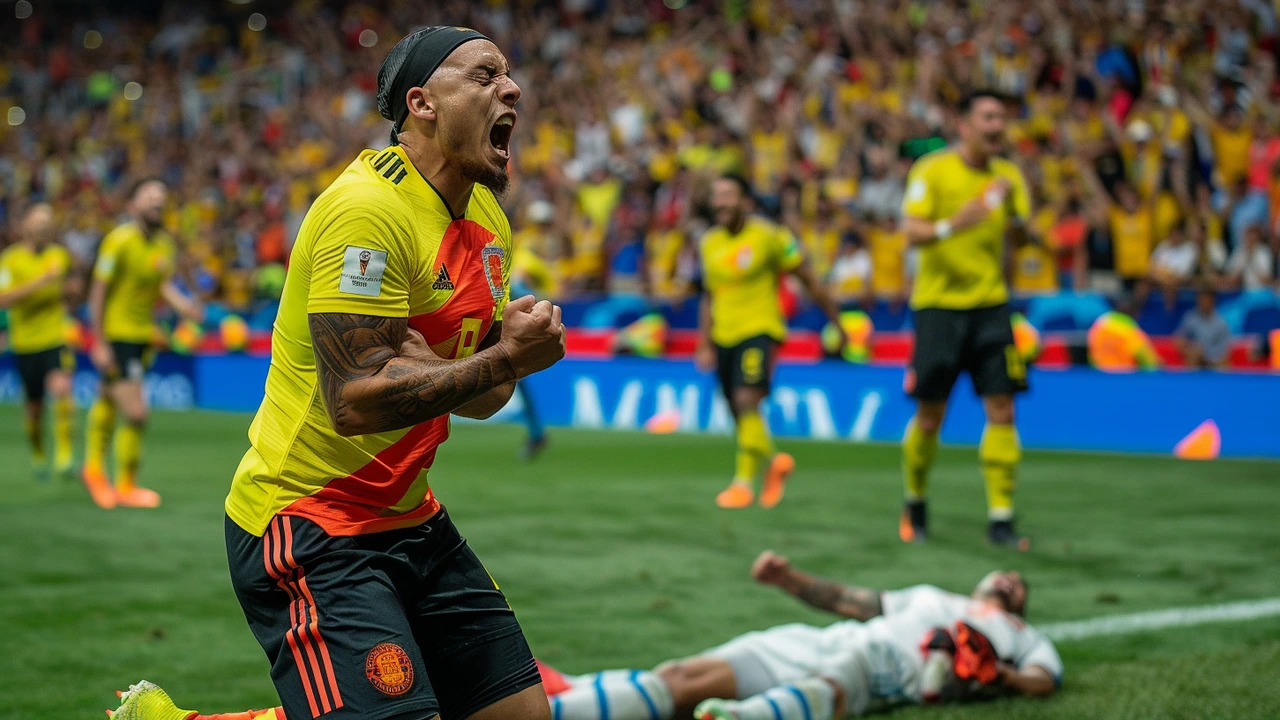

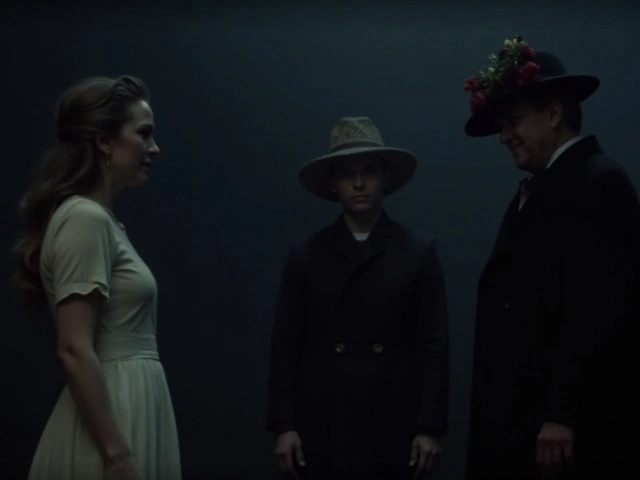
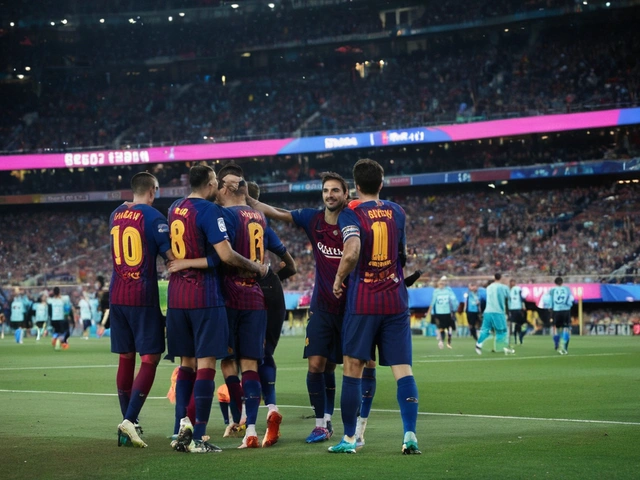
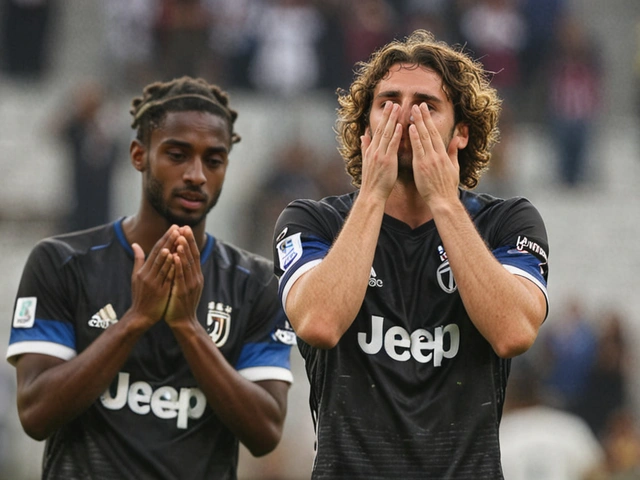
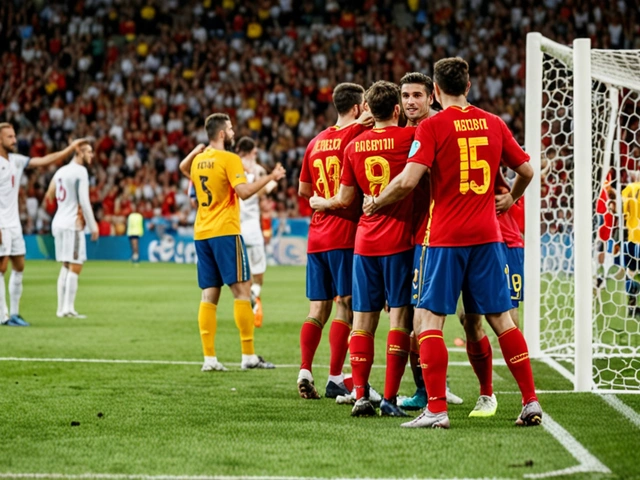
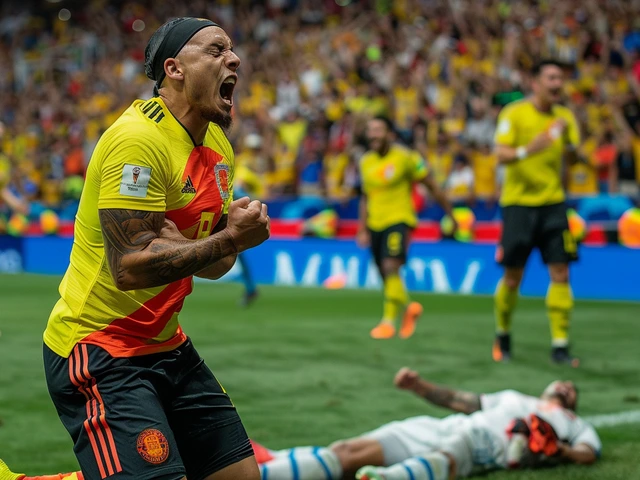

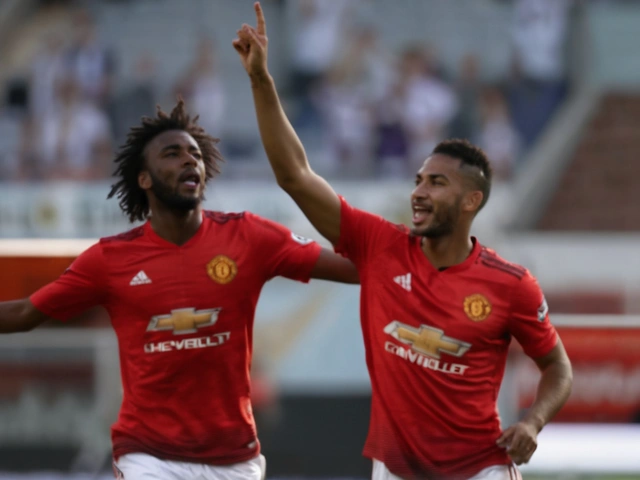
HarDeep Randhawa
June 9, 2024 AT 20:17Wow, another “wake‑up call”??!!, but honestly, what does that even mean???! The USMNT looks like they’re playing hide‑and‑seek with basic tactics, and the fans are left in the dark-still, it’s not like they were ever a world‑class side, is it?!!
Nivedita Shukla
June 13, 2024 AT 16:30In the echoing silence of a shattered stadium, one can almost hear the ghosts of past glories weeping-a tragedy painted in red and yellow, where every missed pass becomes a lament of lost hope! The very soul of a nation trembles, searching for a spark, a phoenix rising from the ashes of this defeat, and yet we linger in the shadows of doubt, yearning for redemption, for purpose, for meaning beyond the scoreboard!
Rahul Chavhan
June 17, 2024 AT 13:50Look, the guys just need to tighten up the back line and keep the ball moving-simple stuff, but it works.
Joseph Prakash
June 21, 2024 AT 11:26🤔👍 just need some quick passes and solid defense ⚽️ keep it simple
Arun 3D Creators
June 25, 2024 AT 09:03the game was a mirror, reflecting not just skill but the emptiness of ambition
RAVINDRA HARBALA
June 29, 2024 AT 06:40The USMMT's structure is a textbook example of mismanagement; every formation choice reads like a random guess, and the midfield looks like a disjointed choir of amateurs-nothing short of a strategic disaster.
Vipul Kumar
July 3, 2024 AT 04:16Hey folks, let's remember that every setback is a chance to learn. Focus on solidifying the defense, work on quick transitions, and keep supporting the team-together we can push them forward.
Priyanka Ambardar
July 7, 2024 AT 01:53Enough with the excuses! 🇺🇸💪 Our guys need to fight like lions, not wobble like kittens 😤
sujaya selalu jaya
July 10, 2024 AT 23:30We hope they bounce back soon.
Ranveer Tyagi
July 14, 2024 AT 21:06Listen up, guys! The defense must stay compact, the midfield has to press high, and the forwards need to finish clinically!!! This is the formula-no more hesitation!!!
Tejas Srivastava
July 18, 2024 AT 18:43Wow!!! The halftime break felt like an eternity-could the team even find its rhythm again???
JAYESH DHUMAK
July 22, 2024 AT 16:20The recent 5‑1 defeat to Colombia presents a multifaceted case study in tactical inadequacy.
Firstly, the United States' defensive organization was compromised by a lack of spatial awareness among the back four.
This allowed Colombian forwards to exploit wide channels with relative ease.
Secondly, the midfield failed to establish a cohesive passing grid, resulting in fragmented possession.
The absence of a clear pivot forced the team into disjointed transitions that were easily intercepted.
Moreover, the pressing intensity was insufficient, granting Colombia the liberty to dictate tempo.
Analytical data indicates that the USMNT's pressing success rate dropped below 45 percent during the first half.
In addition, set‑piece execution was notably subpar, with multiple clear chances squandered.
From a psychological perspective, the squad appeared hesitant, reflecting a possible confidence deficit.
Coach Berhalter's post‑match remarks underscore an awareness of these deficiencies yet lack concrete remedial measures.
It would be prudent for the coaching staff to recalibrate the formation to a more balanced 4‑2‑3‑1 system.
Assigning a dedicated defensive midfielder could shield the back line and facilitate ball recovery.
Furthermore, integrating high‑tempo wing play may stretch the opposition and create scoring opportunities.
Finally, fostering a resilient team culture through targeted mental conditioning could mitigate future performance lapses.
In summary, addressing these tactical, technical, and psychological aspects will be essential for the USMNT to compete effectively in the upcoming Copa América.
Santosh Sharma
July 26, 2024 AT 13:56Indeed, implementing those adjustments could restore stability and confidence, paving the way for a more competitive showing in the tournament.
yatharth chandrakar
July 30, 2024 AT 11:33By embracing a systematic approach and focusing on collective growth, the squad can transform this setback into a catalyst for future success.
Vrushali Prabhu
August 3, 2024 AT 09:10lol ths is rite, the team neds 2 get their act together, maybe some fresh tactics an da little bit of luck, let's r u watchin?